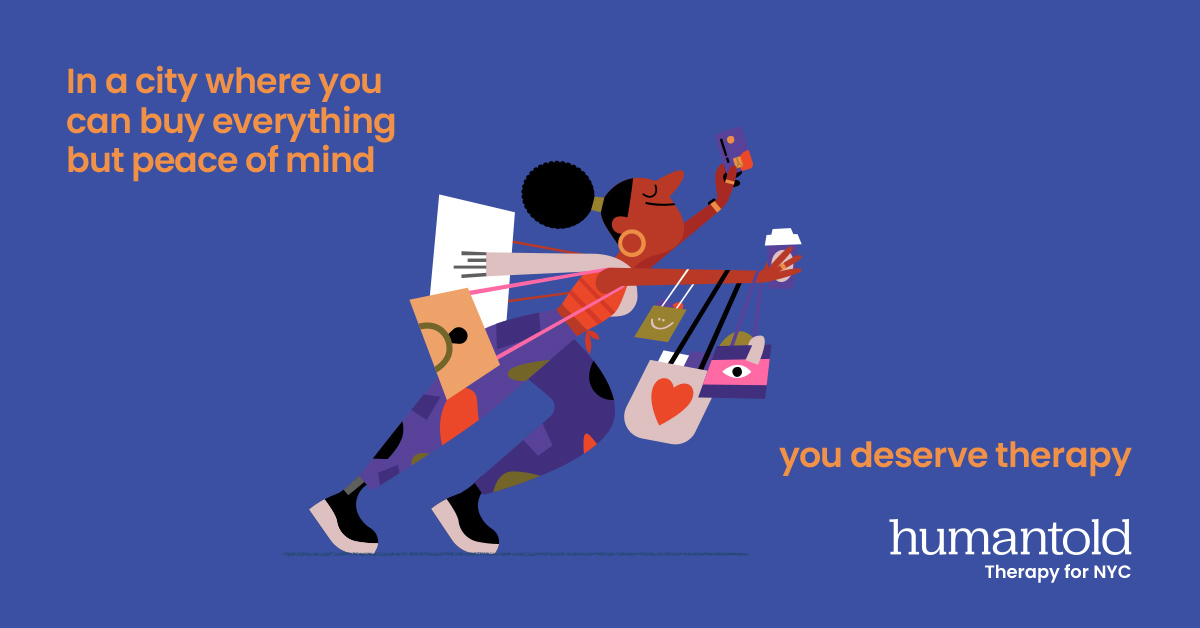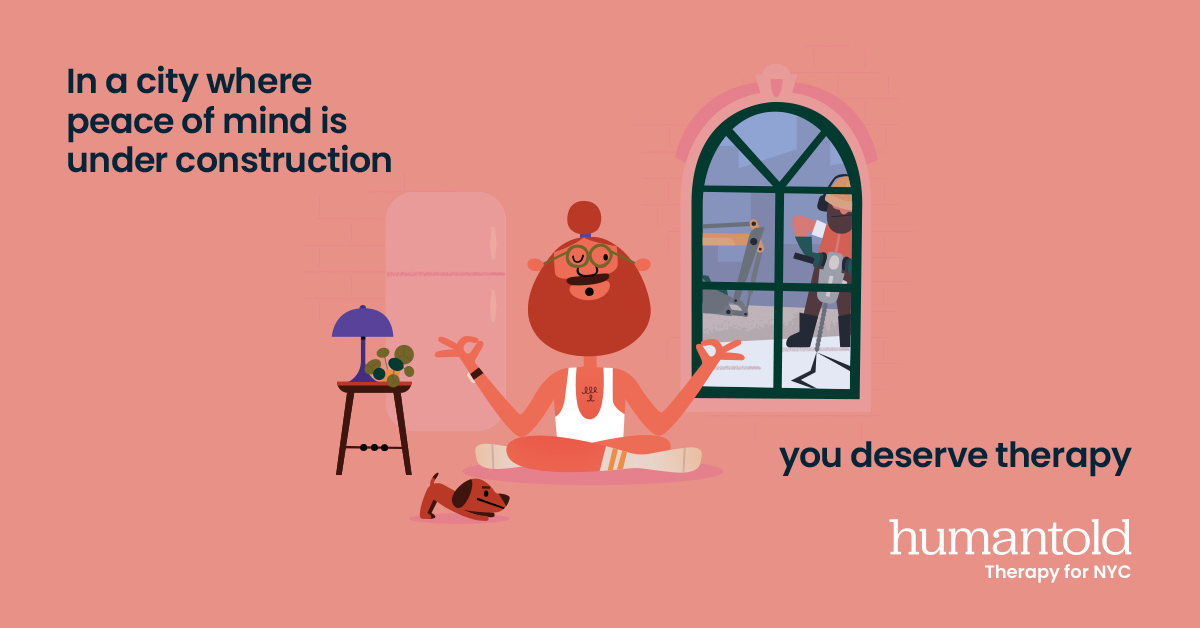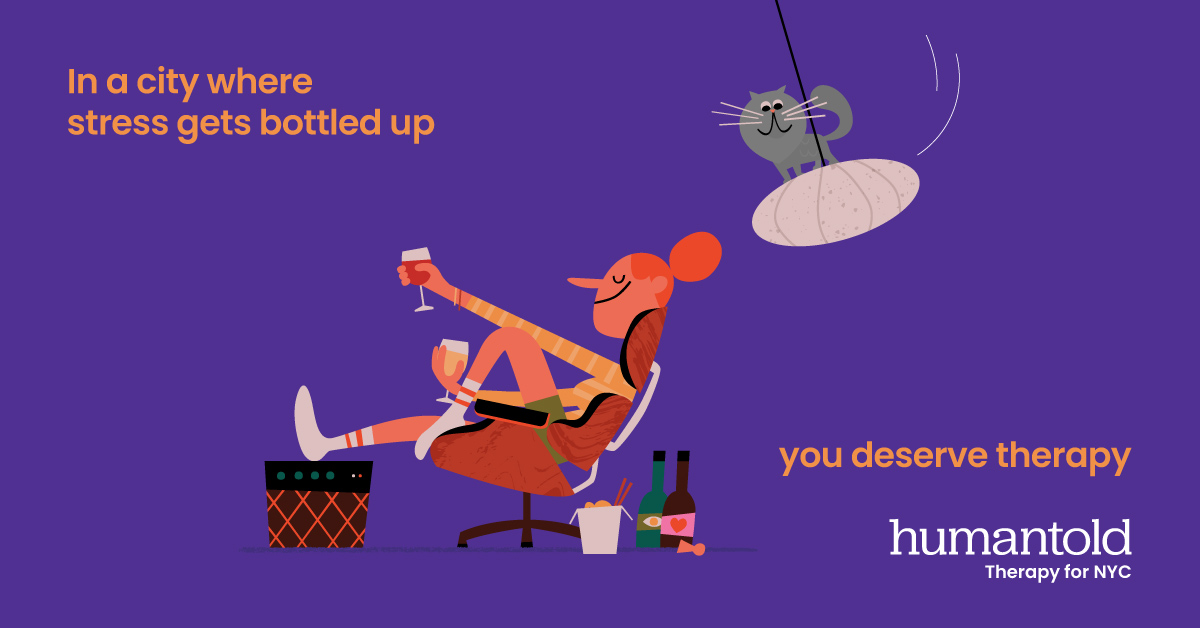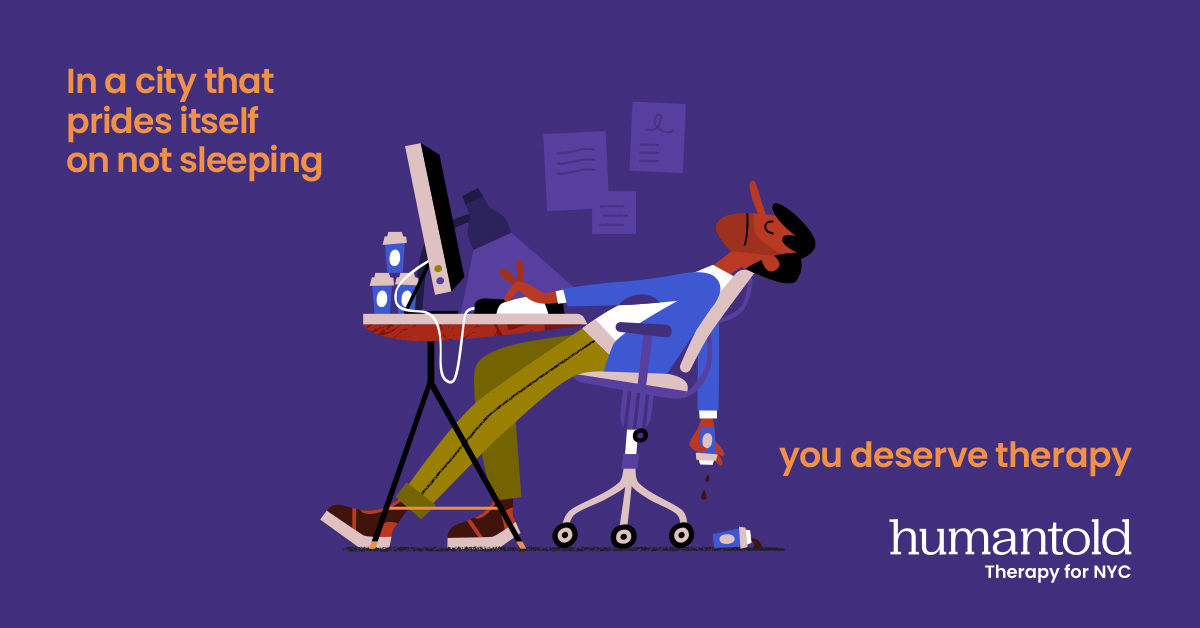Human Maintenance
Being a human is not an easy thing.
And the maintenance?
Forget it.
We understand that the care and keeping of you as a human being can feel overwhelming to impossible sometimes. From diet to exercise to sleep to stress and anger management…all of it can feel like a lot, with not enough hours in the day.
We’d like to humbly offer a starting point to help you better understand and manage the day to day maintenance of your human existence.
Anger Management
Feeling angry in and of itself is not a “bad” thing. It is a completely natural reaction to feeling violated, frustrated, irritated, or disrespected. The emotion is benign; it’s what we do with it that determines if our anger is problematic or a more healthy expression.
Anger management therapy is a type of psychotherapeutic intervention (read: type of therapy) that helps identify and address the causes of anger and the impact the expression has upon a person’s life and functioning. If you have been told you have “anger issues”, or you find that you do not like the person you become when angered, or the way you express your anger is getting in the way of your relationships or professional growth, you might be a good candidate for anger management therapy. Working alongside a trained therapist to develop strategies and methods of communication, self-care and after-care when faced with anger-provoking situations will go a long way in improving your overall mental health and human experience.
Stress Management
Being alive, especially here in New York City, is stressful. The demands, the noise, the crush of people all create their own type of stress. Factor that into the personal stressors we all face in our day to day lives, and it’s not a wonder that stress-related illnesses and those conditions exacerbated by chronic stress routinely top the charts of America’s Top 10 medical conditions.
We’ve all had the experience of some well-meaning person suggesting the key to health and happiness is to “lower your stress levels”.
Ahem.
Sure.
But also: how?
Understanding the consistent stressors a person faces is one of the many things covered in individual therapy. Learning how to cope with and manage stress, whether situational, chronic, or systemic is part of the ongoing work of individual therapy sessions. One of the best ways we can support ourselves and our mental health in this human experience is to understand how to manage our personal responses to stress and cultivate a practice of sustainable self-care.
Sadly, we don’t have a magic wand that can change the whole world and make it a softer place, but we can adjust how we show up for ourselves in our day to day lives.
Mindfulness
Mindfulness gets a bad rap. Often lauded as a cure-all or pinnacle of enlightenment, it seems like a lofty goal for a specific type of person. At its most basic, mindfulness is the awareness of our existence as a feeling, thinking spiritual giant anchored in a human-sized body.
The practice of mindfulness is one of grounding and awareness that has been shown to positively impact mental health, reduce overall stress, and increase attention and focus in day to day functioning. Far from being a place of “no thought”, mindfulness is the active practice of recognizing one’s thoughts and feelings and allowing them to exist, in the present moment, without judgment.
Developing mindfulness is a practiced skill. There are several disciplines throughout the world that can help in this development from yoga to mediation to martial arts. For our purposes, working with a trained therapist who understands the relationship between mind and body, and how to cultivate an orientation of mindfulness can help people recover from unhelpful thinking patterns, manage stress, address poor body and self image issues, and even reduce some symptoms of ADHD, OCD, anxiety, and some trauma disorders. At Humantold, many of our therapists utilize mindfulness techniques in their work with clients. If you are interested, reach out to learn more!
Burnout
Burnout is the result of demands outpacing our resources. Regardless of how we get there, the end result is often the same: we are tired and want to take our ball and leave the playground. When we get to a place where our overall well being goes unattended for too long, that’s when burnout happens.
Burnout shows up in a variety of different ways. Symptoms such as emotional and physical exhaustion, malaise, anger towards routine tasks and inquiries, sadness, and even physical pain for some folks, can indicate burnout.
Burnout recovery and prevention are two sides of the same coin. The key is figuring out how to safeguard and shore up our internal resources, maintaining levels that are conducive to thriving, as opposed to surviving. Establishing and maintaining a healthy work life balance is necessary to maintain our overall mental health and wellbeing. Understanding what our values are, what our limits are, how we experience joy and relaxation, and how to establish and maintain personal boundaries are all vital parts of addressing burnout preemptively and ensuring we can recover if we find ourselves overtaxed. Mental health therapists are trained in helping people address all these areas and more. If you are looking to learn habits for a more balanced existence, check out more below!
Chronic Illness
Chronic pain and chronic illness both take a tremendous physical and emotional toll on a person and their mental well-being. Living life with uncertainty, fear, grief, and the feeling of having your body hijacked, all combined with pain, discomfort, and exhaustion are intensely difficult to navigate alone. Whether struggling with an invisible disability, or a chronic illness, we are here to provide support and quality mental health care to enhance your experience of living, in whatever we can. We work with you to identify those areas and skills you’d like to enhance, and provide a safe space to experience the full range of your expressions from rage to depression to grief to elation. We get that it’s not fair, and it’s not something to be wished upon anyone. Let us join you in your journey for the quality mental health care and support you need and deserve.
Grief
Loss is inevitable, therefore so is grief. Whether it’s the loss of a person, a relationship, a beloved pet, a job, an opportunity, an identity, or a collective loss like we experienced in 2020, we will all know the heartbreak and specific pain and disorientation of grief.
It comes in waves.
It blindsides.
It sucker punches.
It destabilizes as it sucks you under.
Until you’ve experienced it, every platitude seems dramatic and hollow; however, to those of us who intimately know the experience of loss and grief, we know it is all of this and more.
Far from being a linear, seven-stage process, grieving is ongoing as the experience of loss changes our whole landscape and invites us to engage with the world differently. Working with a trained therapist who understands the impact of loss and bereavement can help to give space and language to the experience of grief, allowing you to move forward as you are ready and able.
Get the support you need from one of our licensed therapists.










